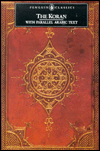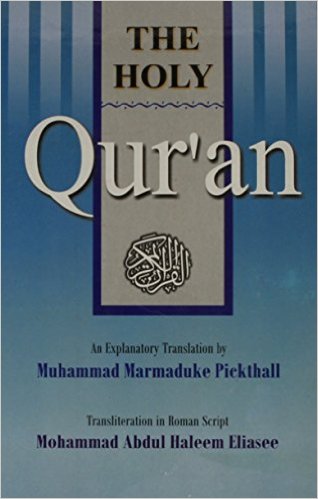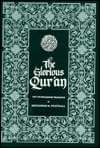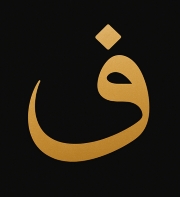A PROFOUND DECLARATION OF AL-QIYAMAH (THE RESURRECTION)
I do call to witness the Resurrection Day; And I do call to witness the self-reproaching Spirit.(Qur'an 75:1-2)
Surah 4:97–99 unveils the boundless mercy of the Divine, embracing those who falter in sin—not from defiance, but under the weight of oppression, ignorance, or powerlessness. These souls are granted forgiveness not once, but time and again, hinting at a sacred cycle of rebirth across lifetimes. When woven together with six other Surahs and illuminated by Surah 75:3–4, the Qur’an reveals a breathtaking truth: resurrection is not a singular moment, but a radiant, ongoing ascent of the soul’s consciousness, forever unfolding toward divine justice and the ultimate realization of eternal purpose.



Rebirth Surah 4:97-99 Al Nisa (The Women)
When angels take the souls of those who die in sin against their souls.
Except those who are weak and oppressed — Men, women and children who have no means in their power,
Nor ( a guide post) to direct their way.
For these, there is hope that Allah will forgive:
For Allah doth blot out (sins) and forgive again and again.
surah 4:97-99 Al Nisa (The Women)
Abdullah Yusuf Ali, The Holy Qur'n, Amana Corporation, 1989.
Divine Mercy and the Weak: Surah 4:97-99 Al-Nisa as Evidence for Rebirth and Universal Justice
Abstract
This paper examines Surah 4:97-99 Al-Nisa (The Women) as compelling evidence for the Quranic doctrine of rebirth and the theological necessity of multiple lifetimes for divine justice. Through detailed textual analysis and theological examination, this study demonstrates that the verses addressing the "weak and oppressed" who are forgiven again and again can only be coherently understood within a framework of reincarnation. The paper argues that the single-life doctrine creates an insurmountable moral paradox when applied to those who, through no fault of their own, lack access to Islamic guidance, and that the concept of rebirth provides the only theologically sound resolution to this dilemma.
Introduction
Among the most profound and challenging passages in the Quran are verses 97-99 of Surah Al-Nisa (The Women), which address the fate of souls who die while having "wronged themselves," yet make specific provisions for those who are weak and oppressed. These verses present a theological puzzle that has long perplexed Islamic scholars: what happens to those who are genuinely unable to fulfill their spiritual obligations due to circumstances beyond their control? This paper argues that these verses, when properly understood, provide clear evidence for the Quranic doctrine of rebirth and demonstrate the theological impossibility of the single-life doctrine [1].
The central thesis of this paper is that Surah 4:97-99 reveals a divine system of progressive spiritual evolution through multiple lifetimes, where souls are given repeated opportunities to achieve spiritual realization. The verses' explicit mention of Allah's forgiveness being granted "again and again" to the weak and oppressed cannot be adequately explained within a single-life framework, but finds perfect coherence within the doctrine of reincarnation.
The Text of Surah 4:97-99: A Foundation for Analysis
The verses under examination present a clear hierarchy of spiritual accountability [2]:
Except helpless men, women, and children who cannot afford a way out—
it is right to hope that Allah will pardon them. For Allah is Ever-Pardoning, All-Forgiving.
This passage establishes several critical theological principles:
Divine Accountability with Compassionate Exceptions: The verses clearly distinguish between those who had the means to escape oppressive circumstances but chose not to, and those who were genuinely helpless. This distinction reveals Allah's perfect justice, which takes into account individual circumstances and capabilities.
The Promise of Repeated Forgiveness: The phrase describing Allah as "Ever-Pardoning, All-Forgiving" suggests an ongoing, continuous process rather than a single act of judgment. The Arabic construction implies repeated acts of forgiveness over time, which aligns perfectly with the concept of multiple lifetimes.
The Theological Problem of the Helpless: The verses explicitly acknowledge that some souls are genuinely unable to fulfill their spiritual obligations due to circumstances beyond their control. This creates a fundamental question: if these souls are forgiven but cannot enter Paradise (as they have not achieved spiritual realization), what becomes of them?
The Doctrine of Rebirth as Theological Necessity
The concept of rebirth provides the only coherent solution to the theological dilemma presented by these verses. Consider the implications of the single-life doctrine when applied to the "weak and oppressed" [3]:
| Single-Life Doctrine Problems | Rebirth Doctrine Solutions |
|---|---|
| Forgiven souls cannot enter Paradise without spiritual realization | Souls receive additional lifetimes to achieve spiritual growth |
| No mechanism for spiritual development after death | Progressive evolution through multiple incarnations |
| Divine mercy limited to single act of forgiveness | Continuous mercy through repeated opportunities |
| Injustice to those born in impossible circumstances | Perfect justice through equal opportunities across lifetimes |
The doctrine of rebirth resolves each of these theological problems by providing a framework where divine mercy and justice operate in perfect harmony. Souls who are genuinely unable to achieve spiritual realization in one lifetime are given additional opportunities, while those who willfully reject divine guidance face appropriate consequences.
Historical Context and the Impossibility of Universal Access
The historical context of these verses makes the argument for rebirth even more compelling. When we consider the vast populations throughout history who have been genuinely unable to access Islamic guidance, the theological necessity of multiple lifetimes becomes undeniable [4].
Geographic Isolation: For over a millennium after the revelation of the Quran, entire continents remained completely isolated from Islamic knowledge. The indigenous populations of the Americas, Australia, and remote regions of Africa and Asia had no possible means of learning about Islam. Under the single-life doctrine, these billions of souls would be condemned to eternal damnation through no fault of their own.
Technological and Cultural Barriers: Even in regions where Islam eventually spread, the process took centuries or millennia. During this time, countless generations lived and died without access to Islamic teachings due to technological limitations, linguistic barriers, and cultural isolation.
Social and Economic Constraints: Many individuals throughout history have been born into circumstances of such extreme poverty, oppression, or mental incapacity that spiritual development was impossible. These souls clearly fall under the category of the "weak and oppressed" mentioned in the verses.
The Quranic promise that Allah will "pardon them" and continue to forgive "again and again" can only be fulfilled through a system of rebirth that provides these souls with the opportunities they were denied in their previous lives.
The Mechanism of Progressive Spiritual Evolution
Surah 4:97-99 reveals a sophisticated understanding of spiritual evolution that operates through multiple lifetimes. The verses suggest that souls progress through different categories based on their spiritual development and circumstances [5]:
Category 1: The Willfully Negligent: Those who had the means and opportunity to seek spiritual truth but chose not to. These souls face immediate consequences and may require more challenging circumstances in future lives to develop spiritual humility.
Category 2: The Genuinely Helpless: Those who were unable to fulfill their spiritual obligations due to circumstances beyond their control. These souls receive Allah's forgiveness and are given more favorable circumstances in future lives to continue their spiritual development.
Category 3: The Spiritually Realized: Those who achieve complete spiritual realization and no longer require earthly rebirth, having fulfilled their purpose and attained union with the Divine.
This system ensures that every soul receives exactly what it needs for its spiritual evolution, while maintaining perfect divine justice. No soul is condemned for circumstances beyond its control, and no soul escapes the consequences of its willful choices.
The Absurdity of Eternal Condemnation for Ignorance
The single-life doctrine, when applied to the realities of human history, leads to theological absurdities that are incompatible with the Quranic portrayal of Allah as All-Merciful and All-Just. Consider the following scenarios that the single-life doctrine cannot adequately address:
The Indigenous Child: A child born to an isolated indigenous tribe in pre-Columbian America, who dies in infancy without ever hearing of Islam. Under the single-life doctrine, this soul's eternal fate is determined by a single, brief existence in which spiritual development was impossible.
The Mentally Disabled: An individual born with severe cognitive disabilities that prevent understanding of complex theological concepts. The single-life doctrine provides no mechanism for this soul to achieve spiritual realization despite its inherent divine nature.
The Oppressed Slave: A person born into slavery in a society where Islamic knowledge is forbidden or unavailable, who dies without ever having the opportunity to learn about spiritual truth. The single-life doctrine condemns this soul for circumstances entirely beyond its control.
These scenarios reveal the fundamental injustice inherent in the single-life doctrine. To attribute such cruelty to Allah (SWT), who is described in the Quran as "More Merciful than a mother to her child," is not only theologically untenable but borders on blasphemy.
The Promise of Continuous Forgiveness
The phrase in verse 99 describing Allah as "Ever-Pardoning, All-Forgiving" provides crucial insight into the divine nature and the mechanism of spiritual evolution. The Arabic terms used (Afuww and Ghafur) suggest continuous, ongoing action rather than a single event [6].
Afuww (Ever-Pardoning): This attribute implies Allah's continuous willingness to overlook faults and provide fresh opportunities. In the context of rebirth, this means that souls are repeatedly given new chances to evolve spiritually, with their past mistakes not held against them if they were due to genuine inability rather than willful negligence.
Ghafur (All-Forgiving): This attribute suggests complete forgiveness that removes all traces of past errors. In the context of multiple lifetimes, this means that souls can start each new life with a clean slate, free from the burden of past mistakes that were due to circumstances beyond their control.
This continuous divine mercy can only operate effectively within a system of rebirth, where souls have multiple opportunities to receive and benefit from Allah's forgiveness.
Scientific and Philosophical Parallels
The concept of rebirth revealed in Surah 4:97-99 finds remarkable parallels in modern scientific understanding of evolutionary processes and consciousness development [7]. Just as quantum physics reveals that subatomic particles undergo continuous cycles of creation and annihilation, and biological systems demonstrate endless cycles of death and regeneration, the spiritual realm operates according to similar principles of cyclical evolution.
The recognition that consciousness and spiritual development require progressive stages aligns with both Eastern philosophical traditions and emerging Western understanding of human potential. The Quranic revelation of rebirth places Islam at the forefront of this understanding, providing a theological framework that is both scientifically coherent and spiritually profound.
Implications for Islamic Theology and Practice
Accepting the evidence for rebirth in Surah 4:97-99 has profound implications for Islamic theology and practice. It transforms our understanding of divine justice, human responsibility, and spiritual development in ways that make Islam more compassionate, more rational, and more universally applicable.
Enhanced Divine Mercy: The doctrine of rebirth reveals Allah's mercy as truly infinite, providing every soul with exactly the opportunities it needs for spiritual evolution. This understanding makes Allah's love and compassion more profound and meaningful than any single-life doctrine could achieve.
Perfect Justice: The system of rebirth ensures that every soul receives perfect justice, with circumstances tailored to its spiritual needs and level of development. No soul is advantaged or disadvantaged by the accidents of birth, as all receive equal opportunities across multiple lifetimes.
Universal Accessibility: The doctrine of rebirth makes Islam truly universal, as it provides a mechanism for every soul, regardless of historical period or geographic location, to eventually encounter and embrace Islamic truth.
Spiritual Responsibility: Understanding rebirth enhances rather than diminishes spiritual responsibility, as souls recognize that their actions have consequences across multiple lifetimes and that spiritual development is an ongoing process requiring continuous effort.
Conclusion
Surah 4:97-99 Al-Nisa provides compelling evidence for the Quranic doctrine of rebirth and demonstrates the theological necessity of multiple lifetimes for divine justice to operate perfectly. The verses' explicit provisions for the "weak and oppressed" who are forgiven "again and again" can only be coherently understood within a framework of reincarnation.
The single-life doctrine, when confronted with the historical realities of human existence, creates insurmountable theological problems that are incompatible with the Quranic portrayal of Allah as All-Merciful and All-Just. The doctrine of rebirth resolves these problems by providing a system where every soul receives exactly the opportunities it needs for spiritual evolution, while maintaining perfect divine justice.
The evidence from Surah 4:97-99, combined with the theological necessity of addressing the plight of the genuinely helpless throughout history, makes the case for rebirth not merely plausible but theologically essential. To reject this understanding is to attribute to Allah (SWT) a level of injustice and cruelty that is fundamentally incompatible with the Quranic revelation.
It is time for Islamic theology to embrace the profound wisdom revealed in these verses and recognize that the doctrine of rebirth is not only supported by the Quran but is necessary for a complete and compassionate understanding of divine justice. Only through this understanding can we truly appreciate the infinite mercy of Allah (SWT) and the profound wisdom contained within the holy text.
The weak and oppressed of every age and every land are not forgotten by Allah (SWT). Through the mercy of rebirth, they are given the opportunities they need to evolve spiritually and eventually attain the divine realization that is the birthright of every soul. This is the true message of Surah 4:97-99 Al-Nisa, and it is a message of hope, justice, and infinite divine love.
References
[1] Ali, Abdullah Yusuf. "The Holy Qur'an." Amana Corporation, 1989.[2] "Surah An-Nisa - 97-99." Quran.com, accessed Oct. 2025.
[3] "Rebirth Surah 4:97-99 Al Nisa (The Women)." Adishakti.org, accessed Oct. 2025.
[4] "Spread of Islam." Wikipedia, Wikimedia Foundation, accessed Oct. 2025.
[5] Fisher, Joe. "The Case For Reincarnation." Collins Publishers, 1984, pp. 23-25.
[6] "Meaning of Quran [4:97-99]." IslamWeb, Jan. 25, 2006.
[7] Zukav, Gary. "The Dancing Wu Li Masters." Bantam Books, 1979.
Related Rebirth Surahs:
1. Surah 2.28 Al Baqarah (The Heifer)2. Surah 4:97-99 Al Nisa (The Women)
3. Surah 22:5 Al Hajj (The Pilgrimage)
4. Surah 23:12-15 Al-Mu'minum (The True Believers)
5. Surah 39:42 Al Zumar (Crowds)
6. Surah 56:60-61 Al Waqi'h (The Inevitable)
7. Surah 71:13-14 Nuh (Noah)
Compilation, Proclamation, and Exegesis of Surahs Upholding Allah’s (SWT) Command to His Ummah — to Witness and Participate in the Resurrection.
Al-Qiyamah – A Profound Declaration of Al-QiyamahAl-Qiyamah (75:1–2) – Oaths of Resurrection
Al-Qiyamah (75:3–4) – Reassembling Bones and Fingertips
— AL-QIYAMAH (THE RESURRECTION) AYAT 5-6
— AL-QIYAMAH (THE RESURRECTION) AYAT 7-10
— AL-QIYAMAH (THE RESURRECTION) AYAT 11-13
— AL-QIYAMAH (THE RESURRECTION) AYAT 14-15
— AL-QIYAMAH (THE RESURRECTION) AYAT 16-19
— AL-QIYAMAH (THE RESURRECTION) AYAT 20-21
— AL-QIYAMAH (THE RESURRECTION) AYAT 20-21
— THOSE WHO BEHAVE ARROGANTLY ON EARTH
— SO THAT EVEN THOUGH THEY SEE ALL THE SIGNS
— AND IF THEY SEE THE WAY OF RIGHTEOUSNESS
— BUT WHEN THEY SEE THE PATH OF STRAYING
— IBLIS: "I WILL CAUSE THEM ALL TO DEVIATE!"
— AL-QIYAMAH (THE RESURRECTION) AYAT 22-25
— AL-QIYAMAH (THE RESURRECTION) AYAT 26-30
— AL-QIYAMAH (THE RESURRECTION) AYAT 31-35
— AL-QIYAMAH (THE RESURRECTION) AYAT 36-40
— WINDS OF QIYAMAH ARE BLOWING (FATIR)
— YOUR HANDS WILL SPEAK (FUSSILAT)
— ANGELS SENT HAVE ARRIVED (AL MURSALAT)
— SIGNS ON EARTH AND WITHIN SELVES SHOWN (FUSSILAT)
— SUN AND MOON JOINED TOGETHER (AL-QIYAMAH)
— ALLAH'S IRON HAS BEEN DELIVERED (AL HADID)
— REVELATION OF LIGHT COMPLETED (AL SAF)
— MIGHTY BLAST ON EARTH ON EARTH ANNOUNCED (QAF)
— MIGHTY BLAST IN SKY HAS OCCURED (QAF)
— CHILDREN OF ISRAEL GATHERED (AL ISRA)
— HIDDEN IMAM MAHDI HAS EMERGED (QAF)
— KITAB AL MUNIR IDENTIFIED (AL HAJJ)
— RUH (SPIRIT) OF ALLAH (AL ISRA)
— THE BAPTISM OF ALLAH (SIBGHATU I'LAH)
— ALLAH WILL NOT ADDRESS THEM (AL BAQARAH)
— THE DEALERS IN FRAUD (AL MUTAFFUN)
— THE DAY YOU WERE NOT AWARE (AL RUM)
— WHAT WILL EXPLAIN TO THEE? (AL INFITAR)
— MY MESSENGERS MUST PREVAIL (AL MUJADIDAH)
— NIGHT OF POWER AND FATE (AL QADR)
— EID AL-ADHA OF 1994
— EID AL-ADHA OF 1995
— MERAJ PROPHET MUHAMMAD
— BELIEF IN HIS ANGELS
— HIS SPIRIT (RUH) AND ANGELS
— DAY OF NOISE AND CLAMOUR (AL QARIAH)
— THE NIGHT VISITANT (AL TARIQ)
— JESUS SIGN OF THE HOUR OF RESURRECTION (AL ZUKHRUF)
— CALLER FROM WITHIN (QAF)
— BLASTS OF TRUTH (QAF)
— FEAR MY WARNING (QAF)
— DELIVER WARNING (AL MUDDATHTHIR)
— CONCLUSION

